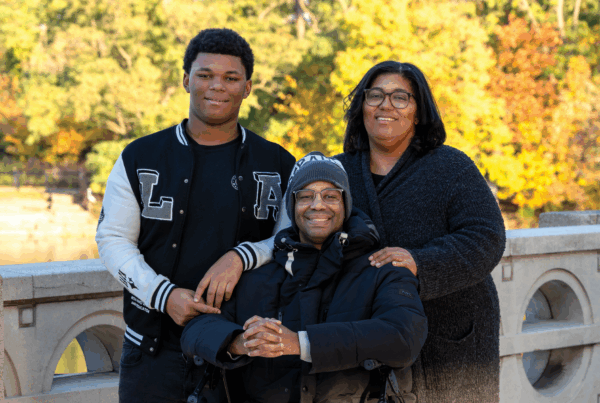Mayor vowed during campaign to support funding mechanism to reduce homelessness, now wants to confiscate that revenue for city’s general coffers, reports say
As Chicago Mayor Lori Lightfoot celebrated 100 days in office, members of the Bring Chicago Home (BCH) coalition held a press conference Wednesday outside her Kenwood Academy event, calling on the mayor to keep the promise she made to the coalition during her campaign.
Earlier this month, Mayor Lightfoot divulged her intention to try to shrink the city’s budget deficit by raising the city’s Real Estate Transfer Tax (RETT) – a one-time fee applied to real estate purchases – on property sales that exceed $1 million.
If she pursues that bid, Mayor Lightfoot would raid the same revenue source she previously promised to use to combat homelessness and a dire shortage of affordable housing. Chicago’s homeless population now surpasses 86,000 residents.
The mayor’s reversal could effectively derail an ordinance favored by Bring Chicago Home that Lightfoot had vowed, during her campaign, to champion. Under the BCH proposal, which has garnered support from 31 aldermen, 70% of revenues generated from a RETT increase would be allocated to programs that alleviate homelessness. The remaining 30% was to be designated for creation of affordable housing.
“No one takes the city’s budget deficit lightly, but Mayor Lightfoot is also in debt to voters who took her at her word when she promised to banish business-as-usual from city government through more support to residents, including people experiencing homelessness,” said CCH Policy Director Julie Dworkin. “These same constituencies were consistently subordinated in the spending priorities of previous mayoral administrations. It’s incumbent on this mayor to show she is different, by upholding her promises to those who are marginalized. Unfortunately, by cannibalizing funds that she, herself, promised to use to curtail homelessness, she’s doing nothing so far but creating barriers to that goal.”
The friction over Lightfoot’s changing stance came as representatives of the more than 70 community groups in the BCH coalition demonstrated outside the Kenwood Academy event, voicing their disappointment in the mayor.
BCH members noted that, as recently as a month ago, Lightfoot told the media that she intended to collaborate with them on a plan to institute a dedicated funding source for programs to mitigate homelessness – even after she acknowledged that she might seek to allocate RETT revenues differently. But in subsequent weeks, the mayor’s office made no overtures for continuing dialogue, and instead announced plans to seek state legislative approval for a RETT increase used only to defray the budget deficit.
“Budget shortfalls have been an issue in Chicago for many years. The mayor knew this, just as we did, when she promised to secure funding to address homelessness,” said Leeanna Majors, a BCH community leader. “A deficit cannot be used now to excuse breaking that campaign promise. The only way to ensure her credibility on this issue is to propose a dedicated funding source to reduce homelessness.”
In a June letter to Lightfoot, aldermen who characterized themselves as “strong supporters of a solution to dramatically reduce homelessness in Chicago” asked the mayor to back the BCH proposal.
“We understand that you are balancing many priorities, but your shared interest in reducing homelessness gives us hope that a plan that would finally achieve this long-sought goal is within reach,” the aldermanic letter stated.
If adopted into law, the measure would remedy a gross shortage of funds that Chicago assigns to combatting homelessness. Chicago’s current $15.5 million annual expenditure relief ranks near the bottom of the 10 U.S. cities with the largest homeless populations.
For more information, contact Mary Tarullo.






